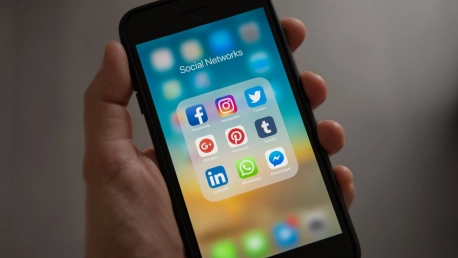The storming of the United States Capitol rocked the world news to its core, but while the riot seemed an unthinkable event for everyone watching, recent information shows it might have been brewing for some time on social media. Online platforms are often used by protesters around the world as a way of finding each other and communicating their strategic plans, but they are also used by law enforcement agencies and officials. While peaceful protesters have nothing to fear, violent rioters can be easily identified and arrested with the help of social media. Social media use during protests may be here to stay, but are all platforms heading for the same future?
Riots Investigation in the Digital Age
Small protests that turn suddenly into massive rallies thanks to social media are not a new phenomenon, and they will probably continue for a long time in the future. Online platforms played an important role during the Arab Spring and Occupy Wall Street movements in the early 2010s, but they were also used during the recent Black Lives Matter protests. If anything, the role digital platforms play in activist movements is growing, especially with the COVID-19 pandemic forcing people to stay at home. However, investigators are also focusing on social media as a consequence.
Facebook recently provided the FBI with important data on users who took part in the storming of the Capitol, including their private messages. The decision came after multiple law enforcement agencies requested the data as being crucial to their investigations. While Facebook’s Chief Operating Officer Sheryl Sandberg initially said that protesters used smaller social media platforms, evidence showed later that multiple Facebook groups and accounts had been used while planning the riot. Facebook was not alone in providing data to law enforcement agencies. While Parler also opened its databases to the FBI, Reddit, Twitter, and YouTube were successfully used to identify and detain alleged radicals.
When Does the Investigation Start?
Social media accounts can be monitored at all times, once search warrants are obtained, which makes platforms useful not only in investigations but also in preventing violent riots. But were they used to prevent the recent assault on the US Capitol or is tighter regulation necessary? While the answer is not easy, comments made by President Donald Trump on social media and the actions that followed may hold the key. “Big protest in D.C. on January 6th,” the then-President tweeted in December. He was soon to ask supporters to join the movement, while also bringing up his election fraud allegations.
Former President Trump was not alone in taking to social media after the outcome of the election became clear. According to Forbes, law enforcement agencies knew long before the events took place that the far-right Proud Boys organization may stage violent attacks on government officials. Social media platform Parler was already supplying the FBI with data, as members of the Proud Boys prepared for the riot that was about to happen in January. But while no action was taken at the time by law enforcement agencies, both Twitter and Facebook decided to suspend President Trump’s accounts in order to prevent an outburst of violence.
Lessons for the Future
By freezing or suspending the former President’s accounts, Facebook and Twitter made it abundantly clear that they don’t want to see their platforms used to plan riots. Facebook initially released a statement saying the risks of allowing President Trump to continue using the platform were considered to be too great, and that other measures had also been taken. “We have also taken enforcement action consistent with our policy banning militarized social movements like the Oathkeepers and the violence-inducing conspiracy theory QAnon. We’ve also continued to enforce our ban on hate groups including the Proud Boys and many others. We’ve already removed over 600 militarized social movements from our platform,” the press release stated.
However, some were left wondering if the decision to silence politicians and activists should be left to social media platforms alone. While platforms may decide to delete or ban harmful content, there seems to be an increasing need for a legal framework for social media content. After all, users may decide to migrate to those platforms that better serve their needs, and some of these needs may be connected with both future protests and riots. One example is the fact that after WhatsApp announced it would be sharing more data with its parent company Facebook, users started to migrate to Signal or Telegram in hope of protecting their personal data.
In an evermore interconnected world, the use and regulation of social media by law enforcement agencies and policy-makers respectively will continue to raise serious privacy concerns for users and activists. However, the problem is not likely to go away without new laws that can balance both freedom of speech and safety.









